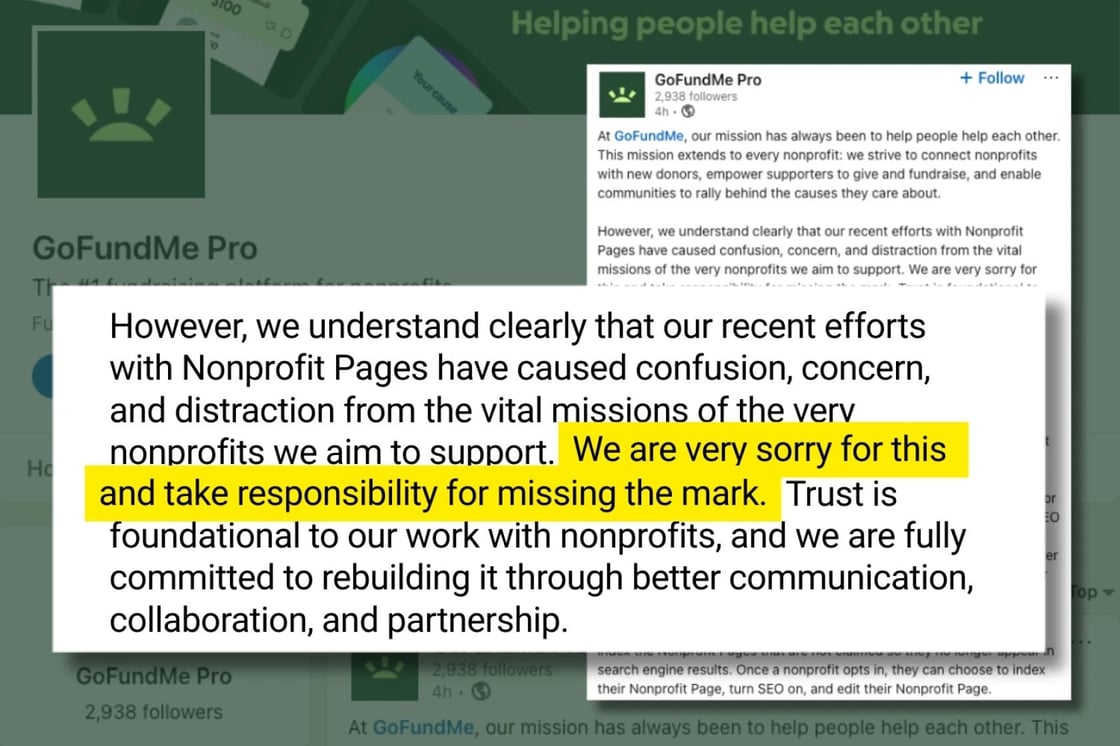
#54: GoFundMe's Unauthorized Pages, Deepfake Election Hacking, Starlink Terminals Tied to Myanmar Fraud Farms
Trust keeps breaking in new places. Donation pages were created without consent, deepfakes are shaping elections, and satellites are connecting scam farms. Different stories, same lesson: integrity can’t be added later.
Let’s get into it.
NATE'S TAKE - OCTOBER 28, 2025
Top Three This Week
- GoFundMe’s 1.4 Million Unauthorized Donation Pages
- A Deepfake Nearly Hacked an Election
- SpaceX Pulls Plug on 2,500 Starlink Terminals Tied to Myanmar Fraud Farms
1. GoFundMe’s 1.4 Million Unauthorized Donation Pages

GoFundMe automatically created 1.4 million donation pages for U.S. nonprofits without their consent. The pages looked official, accepted donations, and included GoFundMe’s default tip to the platform - all without involving the nonprofits themselves. Nonprofits weren't happy about this. Not only did they reportedly not have notification, review, or approval of these pages, but in some cases the GoFundMe pages show better in search engine results than the non-profits own donation pages.
For fraud fighters and product leaders, this isn’t a charity story, it’s a platform integrity one. When automation outpaces consent, even good intentions erode trust.
GoFundMe didn’t run a scam, but for nonprofits it felt like one: it represented organizations without their consent, confused donors, and blurred accountability. That’s what happens when reach and engagement is prioritized over trust.
Integrity has to be designed in, not added later.
- Be transparent about who controls data and money
- Align incentives with your users, not around them
- Build systems that make misuse impossible, not just punishable
GoFundMe’s misstep is a reminder that trust fails when integrity isn’t built in.
2. A Deepfake Nearly Hacked an Election

A deepfake video of Irish presidential candidate Catherine Connolly went viral last week, falsely showing her dropping out of the race. The voice, gestures, and tone were flawless. Even the fake journalist announcing her withdrawal looked real.
More than 160,000 people saw it before Ireland’s Electoral Commission convinced Meta to remove it.
This is what modern misinformation looks like: scalable, believable, and nearly impossible to contain once it spreads. Identity, authenticity, and proof-of-intent are collapsing into the same problem.
If your platform allows uploads, ads, or user-generated content, you need real-time detection, watermarking, and behavioral context. Deepfakes don’t just fake people, they fake trust.
3. SpaceX Pulls Plug on 2,500 Starlink Terminals Tied to Myanmar Fraud Farms

SpaceX confirmed it shut down over 2,500 Starlink terminals powering Myanmar’s scam compounds – massive operations running romance, investment, and pig-butchering scams built on human trafficking and forced labor.
Authorities raided one such site, KK Park, detaining more than 2,000 people and seizing Starlink kits that kept the fraud farms online. The terminals had been smuggled in and activated under fake accounts.
It’s one of the clearest acknowledgements yet that infrastructure can be weaponized just as easily as it can connect. The same tools that bring access can sustain abuse. Connectivity, payments, and content systems all need controls that assume misuse is inevitable.
When scale meets lawlessness, enforcement isn’t enough. Visibility, accountability, and design ethics are what keep technology from becoming the next vector.
===
That’s all for this week! For more insights, follow us on LinkedIn or X, and if you want to learn more about what we do, visit www.specprotected.com.
Ready to get started with Spec?
Nate Kharrl, CEO and co-founder at Spec, has built leading solutions for application security and fraud challenges since the early days of the cloud era. Drawing from his cyber experience at Akamai, ThreatMetrix, and eBay, Nate helped found Spec to focus on the needs of businesses operating in a landscape of increasing AI risks. Under Nate’s leadership, Spec grew from its mid-pandemic founding to raise $30M in venture-backed funding to build solutions used by Fortune 500 companies transacting billions in online commerce. Spec’s service offerings today include protective measures for websites and APIs that specialize in defending against attacks designed to bypass bot defenses and risk assessment platforms.




